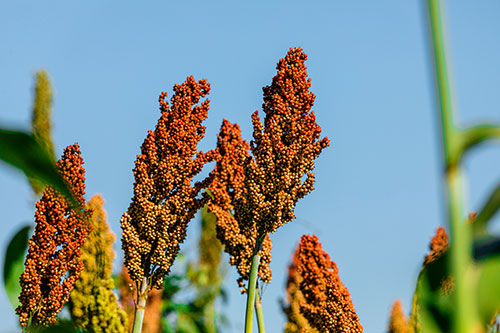As the holiday season approaches, many home kitchens will produce the mouthwatering smells of fresh-baked goods and comfort food. From macadamia nut cookies and pecan pies to turkey stuffing, nuts feature heavily in seasonal pastries and dishes. Below are some recent papers published in ACS journals that report new insights into popular tree nuts. Reporters can request free access to these papers by emailing newsroom@acs.org
“Bulk and Compound-Specific Stable Isotope Analysis for the Authentication of Walnuts (Juglans regia) Origins”
Journal of Agricultural and Food Chemistry
Nov. 2, 2023
Some consumers prefer to purchase produce grown in certain places, but country of origin labels can be accidentally incorrect or falsified. So, a team assessed whether two kinds of stable isotope analysis could differentiate walnuts grown in seven countries. A major result of the study was that the amounts of fatty acids and amino acids were significantly different between walnuts grown in the U.S. and China. The researchers say that one of the techniques, compound-specific stable isotope analysis, could be particularly useful to determine the crop’s geographical origins.
“Texture Properties, Crude Fat, Fatty Acid Profiles, Total Soluble Solids, and Total Polyphenols for 21 Pecan Varieties and the Effects of the Harvest Year”
ACS Food Science & Technology
Oct. 6, 2023
Texture and nutritional content of pecan nuts can differ depending on variety, growing conditions and the harvest year in a tree’s two-year fruit cycle. To learn more about the impact of these factors, a team analyzed kernel texture, crude fat, fatty acids, total soluble solids and total polyphenols in eight common varieties of the nut from two consecutive harvest years. Texture parameters indicated that pecans of the same variety could have different consistencies year-to-year. However, the team determined that the pecan variety had a larger impact on nutritional composition than harvest year.
“Dietary Fibers of Tree Nuts Differ in Composition and Distinctly Impact the Fecal Microbiota and Metabolic Outcomes In Vitro”
Journal of Agricultural and Food Chemistry
June 19, 2023
Most tree nuts are rich in dietary fibers, substances that don’t get digested in the stomach and are instead fermented by gut microbes. Researchers separately ground up almonds, cashews, hazelnuts, pistachios and walnuts, and they measured the percentage of dietary fibers in the samples. Next, they compared the effects of each nut sample on gut microbes in vitro. Of the nuts tested, pistachios had the highest total dietary fiber content, but cashew fibers produced the largest amount of butyrate, a compound that promotes digestive health. However, the team says their results suggest that all tree nut fibers could boost beneficial microbes in the colon.
###
The American Chemical Society (ACS) is a nonprofit organization chartered by the U.S. Congress. ACS’ mission is to advance the broader chemistry enterprise and its practitioners for the benefit of Earth and all its people. The Society is a global leader in promoting excellence in science education and providing access to chemistry-related information and research through its multiple research solutions, peer-reviewed journals, scientific conferences, eBooks and weekly news periodical Chemical & Engineering News. ACS journals are among the most cited, most trusted and most read within the scientific literature; however, ACS itself does not conduct chemical research. As a leader in scientific information solutions, its CAS division partners with global innovators to accelerate breakthroughs by curating, connecting and analyzing the world’s scientific knowledge. ACS’ main offices are in Washington, D.C., and Columbus, Ohio.
To automatically receive press releases from the American Chemical Society, contact newsroom@acs.org.
Note: ACS does not conduct research, but publishes and publicizes peer-reviewed scientific studies.









